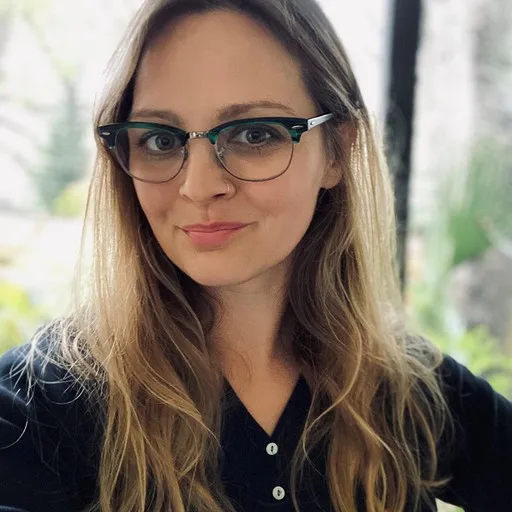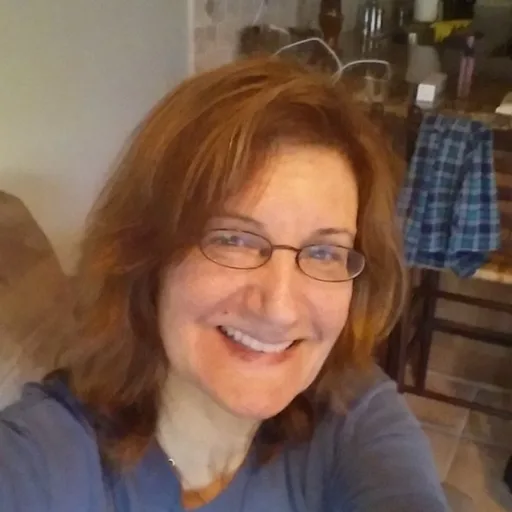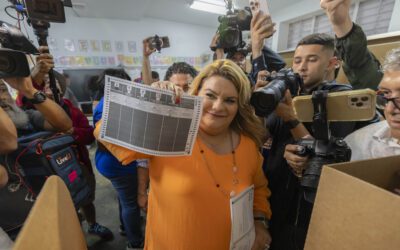
Image via Getty Images
Alejandra Rondon, Latinx constituency manager at Florida Rising, the state’s largest independent political progressive organization, talked to Floricua about the ongoing efforts to give voters the power to protect women’s right to choose across the state.
Last year, Anabely Lopes was over the moon with happiness when she found out that she was expecting a child. But when the 44-year-old former nurse was 15 weeks pregnant, results from genetic testing brought devastating news. Her baby had Trisomy 18, a genetic condition that affects how a child’s body develops.
Due to the severe defects, most babies diagnosed with the condition die before they are born, or within 5 to 15 days after birth, Lopes said during a press conference earlier this month. After much soul searching and a heartbreaking discussion with her husband and her doctors, she decided to get an abortion.
But first, Lopes had to deal with Florida’s abortion law that went into effect July 1, 2022.
Signed into law by Gov. Ron DeSantis, CS/HB 5 banned abortions after 15 weeks of pregnancy. It includes exceptions to save the woman’s life, prevent serious injury, or if the baby has a “fatal fetal abnormality.”
But it requires two doctors to certify in writing that the abortion is medically needed. Lopes’ doctors, however, were afraid to write the letters. That is because pursuant to a section of the law, any person who willfully performs, or actively participates in an abortion in violation of these statutory requirements, commits a third-degree felony. If the woman dies, the crime can be charged as a second-degree felony.
Left with no options, Lopes ended up traveling to Washington D.C., where she underwent the procedure.
“The state of Florida has put so many hurdles in the path of women to be able to address their unique, potentially dangerous healthcare situations, that it made it impossible for her to be able to do what was best [for her own health and for her baby],” US Rep. Debbie Wasserman Schultz of Florida said in February during a news conference.
The Hurdles in Women’s Path
But Lopes and women in Florida didn’t know that the fight for a woman’s right to choose was just beginning. Earlier this September, the Florida Supreme Court heard oral arguments in a lawsuit brought by Planned Parenthood and the American Civil Liberties Union challenging the 15-week abortion ban.
If the court ultimately approves the 15-week ban, a six-week ban signed into law by Gov. DeSantis that would result in felony charges for “any person who willfully performs or actively participates in a termination of pregnancy,” would take effect 30 days later, cutting off access to abortion early in the first trimester.
RELATED: Florida Supreme Court Appears Poised to Uphold DeSantis’ 6-Week Abortion Ban
In response to the oral arguments, Senate Minority Leader Lauren Book filed a bill that would prevent women from being charged with crimes after getting abortions. Elsewhere, advocates from Floridians Protecting Freedom and the Reproductive Freedom Collective of Broward are fighting to put abortion on the ballot in 2024. This would give voters the power to protect abortion rights until fetal viability, which is usually around 23 to 24 weeks of pregnancy.
Effecting Change at the State Level
Floricua spoke with Alejandra Rondon, Latinx constituency manager at Florida Rising, Florida’s largest independent political progressive organization. Rondon is also the co-lead with Chao Valero from Latina Institute for Reproductive Justice on floridalibertad.com, the Spanish language arm of the Floridians Protecting Freedom campaign.
Floricua: Five of the seven Florida Supreme Court justices hearing the arguments were appointed by DeSantis. Do you have a sense of how the decision will go?
Rondon: I think we’re always prepared to react to negative decisions. But I don’t know. Yesterday, and this is separate from this issue, a ruling of the Supreme Court came out saying that there was no justification for the rate hikes that Florida Power and Light (FPL) has done. And it shocked everybody. So, I don’t know. We are expecting the Supreme Court to issue its decision on the 15-week abortion ban within the next three weeks. If the Supreme Court rules that the 15-week ban is constitutional, then shortly thereafter, the six-week ban would take effect already with the 15-week ban. So, we are waiting to see what happens, and how we can react.
Who do you think stands to be the most affected if the court rules the 15-week ban constitutional and the six-week ban goes into effect 30 days later?
Definitely marginalized women will be, and any woman also that suffers an unfortunate medical situation or miscarriage or any other number of medical conditions that can happen that could put their life at risk or the baby’s life at risk. Florida has become one of 20 states that has either severely restricted or completely restricted access to abortion, and I think we’re already seeing severe effects where women are not able to access the health care that they need, and it’s devastating. But we also fundamentally know that the majority of Floridians want legal access to abortion.
Who do you think this ban is designed to appeal to?
I personally think that [this is designed] to appeal to a small very extreme wing of the Republican base. I think ultimately, what I think will be successful about this ballot initiative is that it’s not asking voters to all completely align on how they feel about abortion or how they feel about reproductive rights, but the fact that this should be in the hands of voters and not politicians. I think people are not going to want a small base of very polarized people deciding for themselves and for others.
In your opinion or experience, how are medical providers reacting to this situation?
I think that on the medical provider front, the majority of medical providers that are treating women are in disagreement with current laws. It’s just a complete disregard for the fundamental human right to bodily autonomy, but it is also disregarding not just the relationship between a doctor and the patient, but the health and the adequate treatment of women. I think that many women are seeking care in other states if they are able to have that level of choice or access to that care, which is expensive.
Florida advocates are trying to put abortion on the ballot so that it is the voters who decide on the issue. What can you tell us about the work you’re doing?
We’re super excited to be a part of both the overall Floridians Protecting Freedom campaign. Also, this is the first time that a ballot initiative in Florida has a Spanish language arm. We’re specifically seeking to be able to talk to voters in Spanish about this issue, because we believe that the Latino community and the Spanish language community are in favor of access to abortion. We are building a communications work group in Spanish, for example, and we’re also trying to build a robust field infrastructure, so the goal is to be in majority Spanish speaking communities talking to community members, educating community members.
RELATED: Florida Democrat Introduces Bill to Protect Abortion Seekers From Criminal Charges
How does this ballot initiative work and what will it actually do?
The goal is to have a million signatures by December of this year. If we’re able to collect a million signatures via petitions, then we are able to put the question on the ballot to voters of whether they believe women should have legal access to abortion in the state of Florida, and that would amend the constitution to make that possible. We believe it is possible, polls that we have done demonstrate to us that it’s possible. The time that I have spent on the field demonstrates to me that it is possible, that people have complex views over reproductive rights, but I think the overwhelming majority of Floridians believe that this is a decision between a woman and her doctor or a patient and their doctor.
Why do you think the campaign can reach Florida voters?
Because of the super majority Republican control of both the legislature and the Governor’s House, I think in Florida for a long time, not just the Latino community, but I think many folks that disagree with our current politics, have not felt like there are concrete ways around specific issues to affect change. And so, I think people see the ability to effect change at the state level. The overwhelming majority of the people say that that is a right for voters to decide.
How is the signature drive going? Are you close to the goal?
The campaign in its entirety has a large infrastructure of mostly volunteers that train volunteers that want to collect petitions. And we do this everywhere from churches and faith institutions to concerts, public parks and public spaces. Where there’s people, we try to be there.
So, we have had great success so far in gathering signatures. We just hit the threshold for Supreme Court review, which is really exciting, and we have close to 300,000 signatures validated by the state. Two or three more hundreds of thousands have already been submitted but are being verified by the state. I think there’s a ton of momentum.
If it gets on the ballot, when would Floridians vote on this measure?
It would be on the ballot for the November 2024 election, which is going to be a presidential election year.
Is there anything you would like to add?
I’d like for folks to know just how much support this has. And to encourage people to volunteer. This is not a political issue, this is something that we know people want, that we know will bring health to people. So, I would really encourage people to get involved. If they are Spanish speakers, they can go to Floridians Protecting Freedom, which also links to the Spanish site and there they can sign up to volunteer.
Support Our Cause
Thank you for taking the time to read our work. Before you go, we hope you'll consider supporting our values-driven journalism, which has always strived to make clear what's really at stake for Floridians and our future.
Since day one, our goal here at Floricua has always been to empower people across the state with fact-based news and information. We believe that when people are armed with knowledge about what's happening in their local, state, and federal governments—including who is working on their behalf and who is actively trying to block efforts aimed at improving the daily lives of Florida families—they will be inspired to become civically engaged.


Misinformation about birth control is rampant on social media, alarming doctors
Doctors are concerned that misinformation about birth control might make some women get off it at a time when there are fewer options available for...

Crisis pregnancy centers give questionable advice on unproven ‘abortion pill reversal,’ study finds
A new study published in JAMA Internal Medicine found that 30% of these anti-abortion ‘fake clinics’ promote "abortion pill reversal," a treatment...

10 music festivals coming to Florida in 2025
Catch jaw-dropping live sets from international stars of merengue, salsa, electronic music, and more at these 10 Florida music festivals. Throughout...

From Parrandas to Patron Saint Festivals: Puerto Rico’s Timeless Traditions
Some Puerto Rican traditions are so deeply rooted that, regardless of trends or the passage of time, they continue to be passed down from generation...




